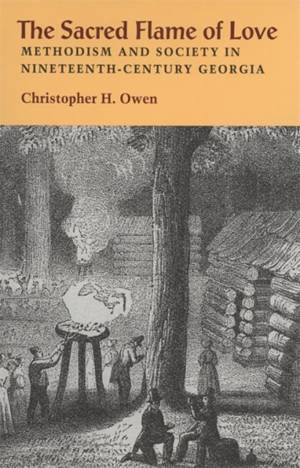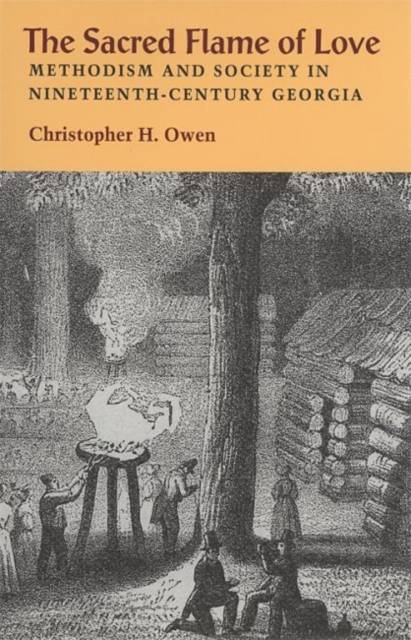
- Retrait gratuit dans votre magasin Club
- 7.000.000 titres dans notre catalogue
- Payer en toute sécurité
- Toujours un magasin près de chez vous
- Retrait gratuit dans votre magasin Club
- 7.000.0000 titres dans notre catalogue
- Payer en toute sécurité
- Toujours un magasin près de chez vous
Description
Attempting to restore subtlety and nuance to the study of southern religion, The Sacred Flame of Love ranges across the entire nineteenth century to chronicle the evolution of the institutions, theology, and social attitudes of Georgia Methodists in light of such phenomena, trends, and events as slavery, class prejudice, republicanism, population growth, economic development, sectional politics, war, emancipation, and urban growth.
In connecting Methodist history with the larger social transformation of nineteenth-century Georgia, Christopher H. Owen uncovers a story of considerable complexity and variety. Because Georgia Methodists included people from every social class, few generalizations apply properly to all of them. For many years they were loosely united by common adherence to the ideals of Wesleyan evangelicalism, but economic and political developments would gradually accentuate Methodist social divisions and weaken even this bond. Indeed, deviating far from the conception of unchanging and asocial southern religion often held by scholars, Owen sees both church and society undergoing enormous change in the nineteenth century.Spécifications
Parties prenantes
- Auteur(s) :
- Editeur:
Contenu
- Nombre de pages :
- 312
- Langue:
- Anglais
Caractéristiques
- EAN:
- 9780820319636
- Date de parution :
- 01-04-98
- Format:
- Livre relié
- Format numérique:
- Genaaid
- Dimensions :
- 165 mm x 243 mm
- Poids :
- 635 g

Les avis
Nous publions uniquement les avis qui respectent les conditions requises. Consultez nos conditions pour les avis.






